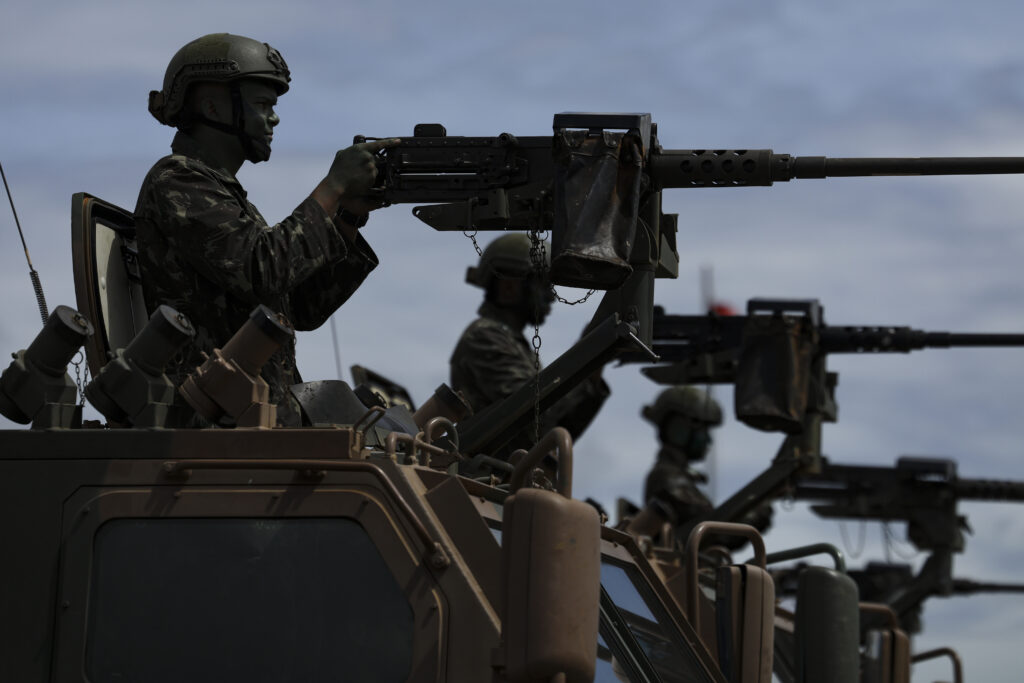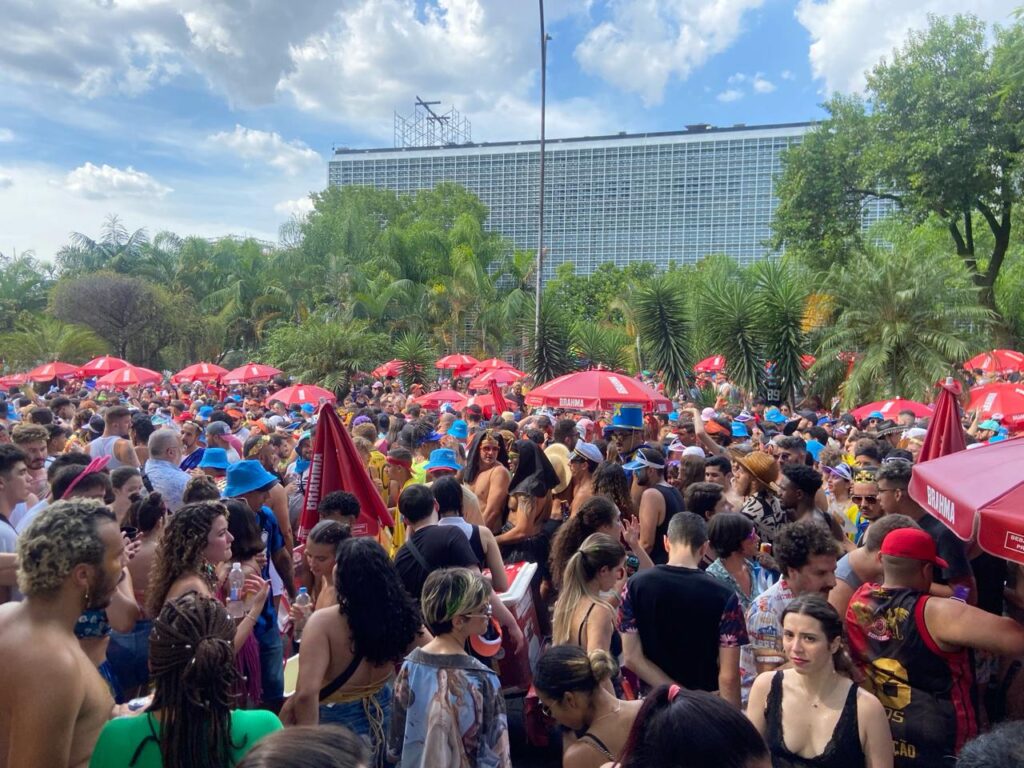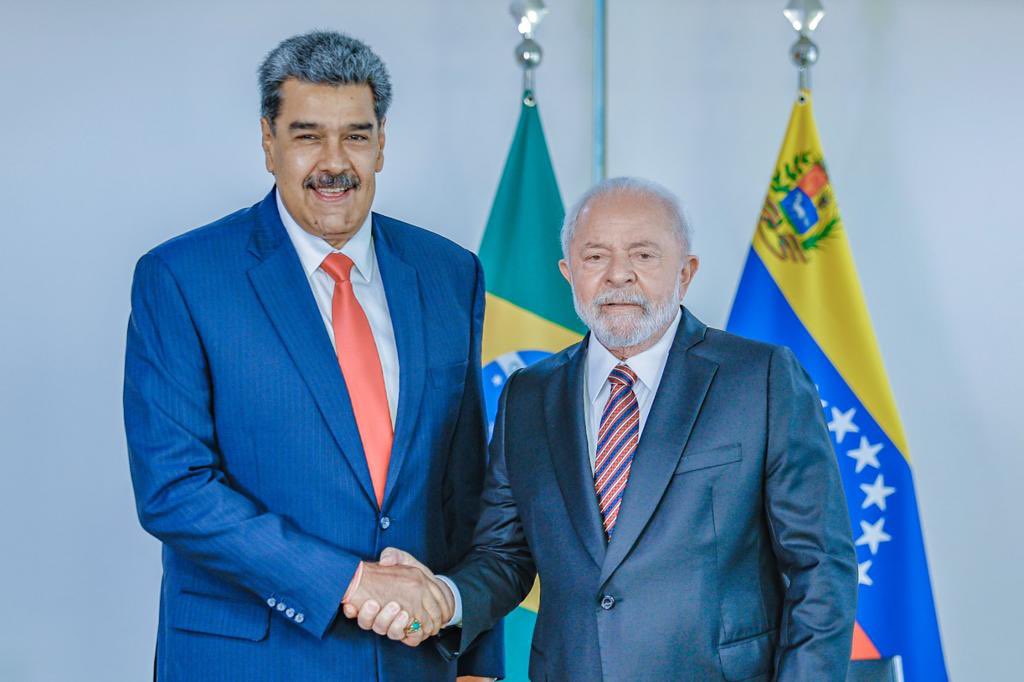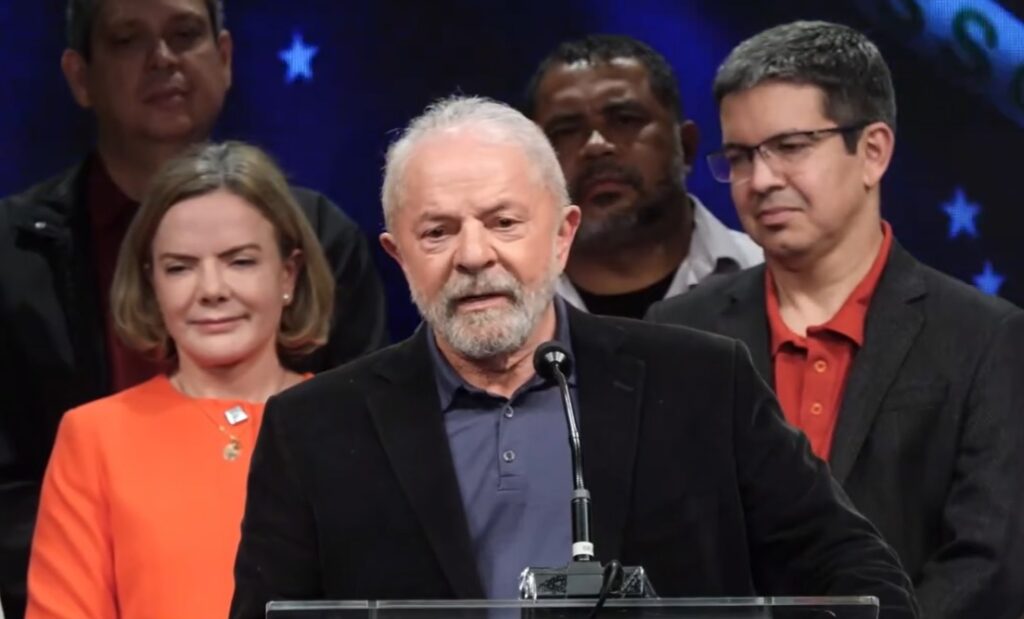São Paulo, Brazil – Brazil will have more female athletes than males competing in the Olympics for the first time in its history.
At the 2024 Summer Olympic Games, which kick off in Paris on July 26, Brazil will be represented by 276 athletes across 39 sports. Among them are 153 women — which represent 55% of the delegation — according to the Brazilian Olympic Committee (COB). At the last Summer Olympics in Tokyo in 2021, Brazil’s delegation was made up of 47% women.
The COB believes that the increase in the number of women qualifying for the Olympics may lead to another historic milestone in Paris: women winning more medals than men. This expectation is supported by the recent success of athletes such as gymnast Rebeca Andrade, boxer Beatriz Ferreira, skateboarder Rayssa Leal, and swimmer Ana Marcela Cunha, who are already Olympic medalists.
“There is a real chance of having more female medalists than male medalists for the first time in the Olympic Games. At the Pan American Games in Santiago in 2023, we already had more women’s medals, which was the first time this happened in a multi-sport event. And the chances of this happening in Paris are also high because we have more women in the delegation, and many of them have a recent history of great performances at the international level,” said COB General Director Rogério Sampaio.
An increase in open slots in team sports was crucial for women to overtake the majority on team Brazil. Female athletes secured spots in soccer, volleyball, handball, and rugby, while the men only qualified in volleyball and basketball. In soccer, the country’s most popular sport, only the women’s team will compete in Paris as the men’s team — a traditional powerhouse — did not qualify.
“After identifying an opportunity for growth in women’s sports, the COB began investing specifically in women — not only athletes but also to increase the number of female coaches and managers. It was a strategy that paid off, and we now have more athletes standing out internationally,” said Mariana Mello, COB’s Planning and Sports Performance Manager.
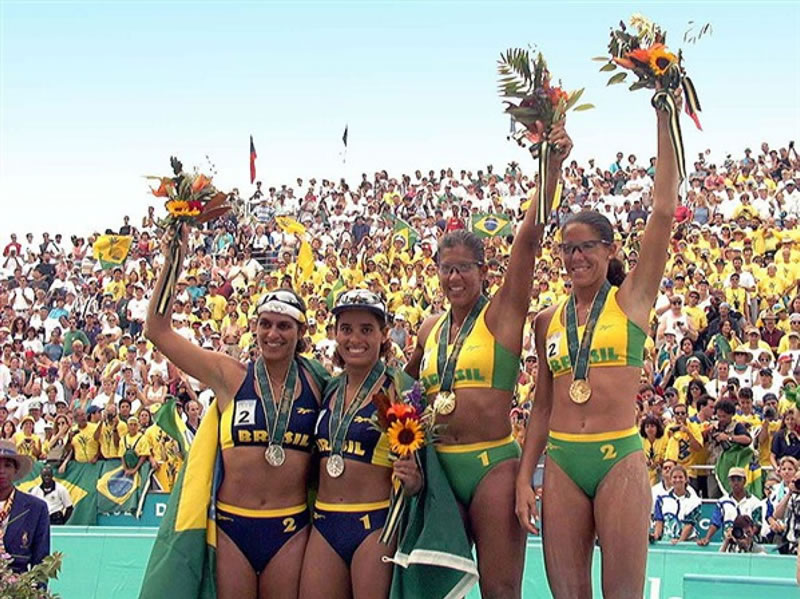
The first Brazilian woman to compete in the Olympics was swimmer Maria Lenk, who competed in London 1932 and Berlin 1936. At the Tokyo Olympics in 1964 and Mexico City in 1968, high jumper Aída dos Santos was the only woman to represent Brazil.
The first women’s medals came at the Atlanta Games in 1996: gold and silver for Jaqueline Pires/Sandra Silva and Mônica Rodrigues/Adriana Samuel, respectively, in beach volleyball; bronze in indoor volleyball and silver in basketball. Since then, according to COB data, Brazilian women have won 33 medals, nine of which were in the Tokyo Games.
5 Brazilian female athletes to watch
Rebeca Andrade – Artistic Gymnastics
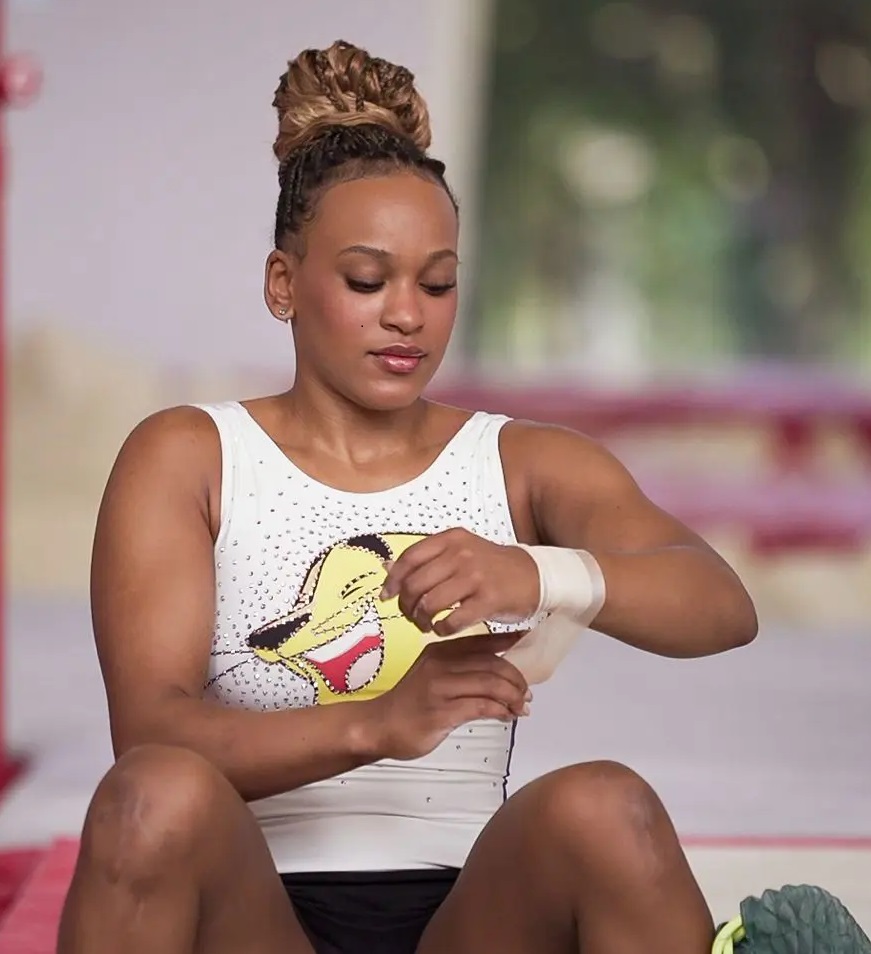
Rebeca Andrade won the gold medal in vault and the silver medal in the all-around in Tokyo, becoming the first Brazilian to win an Olympic medal in artistic gymnastics. At 25, she is already considered the greatest gymnast in the country’s history, to the point of being “feared” by American all-star Simone Biles, the most decorated gymnast in the sport.
“Rebeca Andrade is the gymnast that scares me the most,” said Simone in her Netflix documentary. At the 2023 World Championships, when Rebeca and Simone last competed against each other, the Brazilian won five medals, including a silver in the all-around, losing only to the American.
Due to her unprecedented results for Brazilian gymnastics, Andrade is one of the top contenders in Paris. She said she is more mature and better prepared for the Olympics. “I think I’m more mature. It’s a pride for me to have this recognition. To walk into the gyms and have people want to talk to you, take a photo. It’s about our work,” she said.
Rayssa Leal – Skateboarding
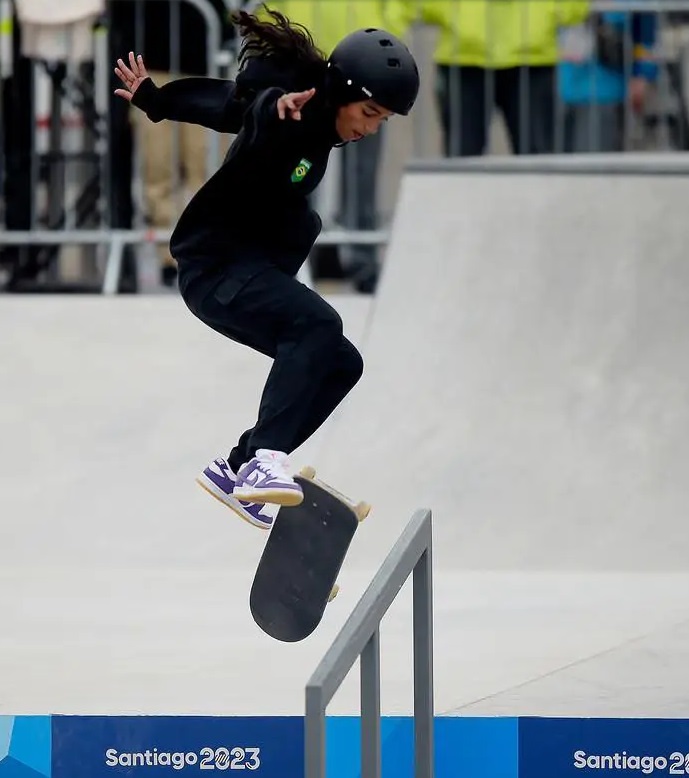
Known as the “Little Fairy of Skateboarding,” Rayssa Leal won a silver medal in street skateboarding in Tokyo at just 13 years old, becoming one of the youngest Olympic medalists in history. Since then, Rayssa has continued to excel in international street skateboarding competitions, winning three world titles.
Now, at 16, she arrives in Paris as another medal hopeful for Team Brazil. “I’m coming in my best possible shape. We worked hard for this after the championships ended and trained to be 100% here, both mentally and physically. I want to give my best,” she said.
Beatriz Ferreira – Boxing

In Tokyo, Beatriz Ferreira won the silver medal in the lightweight category (up to 60kg), confirming her position as one of the best boxers in the world.
Ferreira has stood on the podium at every competition she attended during the Olympic cycle, with highlights including gold and silver at the World Championships in 2023 and 2022, respectively.
In Paris, her goal is to win the long-awaited Olympic gold medal. “I want to shine at the Olympics and bring home the mother of all medals: the gold this time,” said Bia, who remains undefeated in 2024, a year in which she has already won a world title.
Ana Marcela Cunha – Marathon Swimming
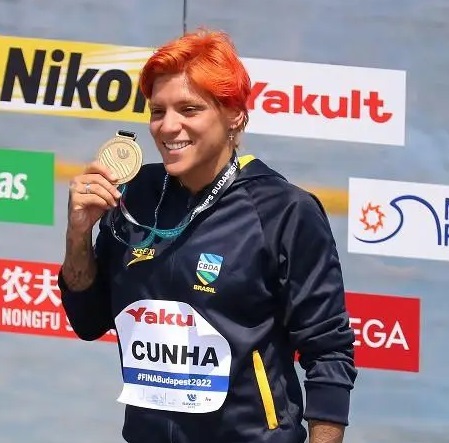
Ana Marcela Cunha won the gold medal in the 10km swim event at the Tokyo Games in 2021 and has been named the world’s best open water swimmer six times, with seven world championship titles.
At the end of 2022, Cunha underwent a serious shoulder surgery but managed to recover in time to make it to Paris.
“I’m very confident and happy with what’s coming,” said the swimmer, who changed coaches and moved to Italy with her wife just to train there — all in pursuit of her second Olympic gold medal.
Rafaela Silva – Judo
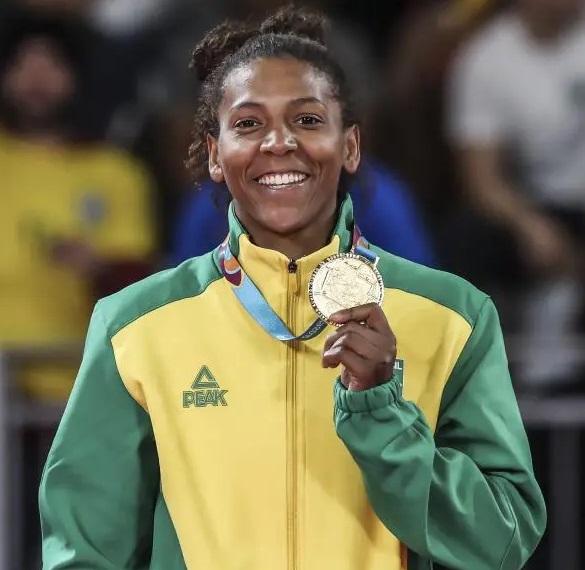
Rafaela Silva won the gold medal in the 57kg category at the Rio de Janeiro Olympics in 2016, becoming the first Brazilian woman to win a gold medal in judo.
Silva did not compete in Tokyo 2020 due to a two-year suspension. In 2019, she tested positive for a banned substance used to treat asthma. The athlete claimed the use was accidental, but the suspension was upheld.
She returned to competition in 2021 and regained top form, winning the Judo World Championship for the second time in 2022 and other medals in Grand Slam events, which elevated her to the top of the ranking in her category.
With this, Silva arrives confident for the Paris Games. “Now it’s about maintaining what we’ve been doing and taking care of ourselves as much as possible to avoid any surprises,” she said.
Bonus – Team Sports
Ana Patrícia and Duda – Beach Volleyball
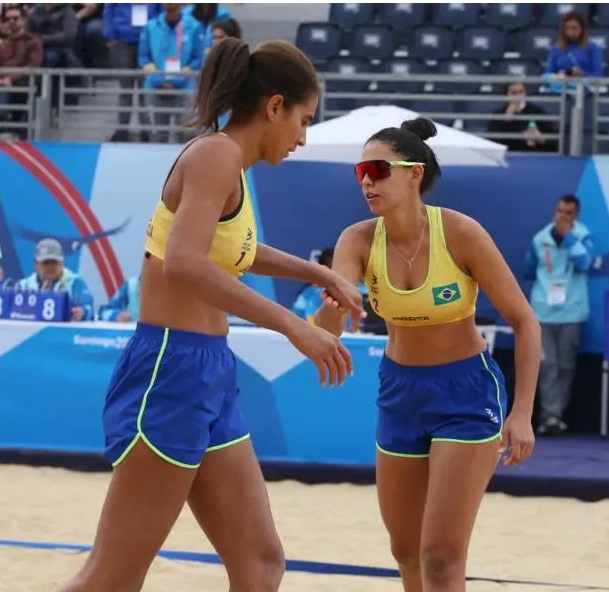
The Brazilian duo of Ana Patrícia and Duda leads the International Volleyball Federation rankings after winning the world championship in 2022 and taking silver last year. The two have known each other since their teens, when they won the Youth Olympic Games title in 2014.
At Tokyo, they competed with different partners, and both were eliminated before the medal rounds. It was the first time Brazil failed to win a medal in beach volleyball since the sport’s inclusion in the Olympics in 1996. The disappointing result led Ana and Duda to reunite.
They arrive in Paris as medal favorites but are determined to stay focused. “We understand there’s a big responsibility, it’s inevitable. We’ve had great campaigns since we got back together. But we try not to think too much about it,” said Ana Patrícia.
Women’s Volleyball Team
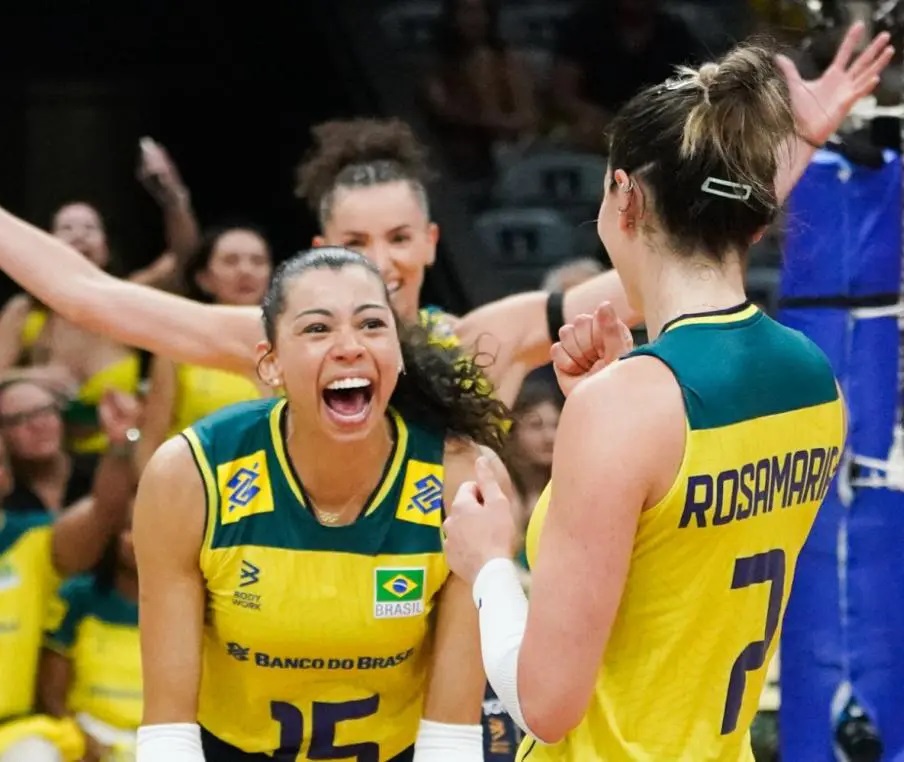
Brazil has a history of strong performances in women’s volleyball, with two gold medals (Beijing 2008 and London 2012) and podium finishes in Atlanta 1996 and Tokyo 2021, where the team lost to the United States in the final.
The team is led by the successful coach José Roberto Guimarães, one of the greatest names in Brazilian volleyball. He won Olympic gold in 2008 and 2012 and also led the men’s team to gold at the Barcelona Olympics in 1992, making him the only coach to win Olympic gold in both gender categories.
On the court, Brazil has big names like captain Gabi Guimarães, one of the world’s top athletes, and the experienced Thaísa, who was part of the victorious teams of 2008 and 2012. “We didn’t come to the Olympics just to participate. Our goal is to win the gold medal. Five or six teams are in this fight, but our team has grown a lot in recent months,” said Gabi.



